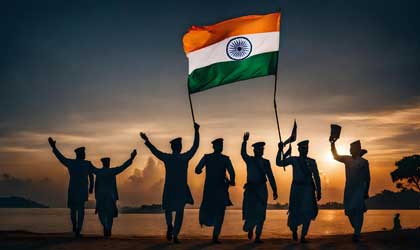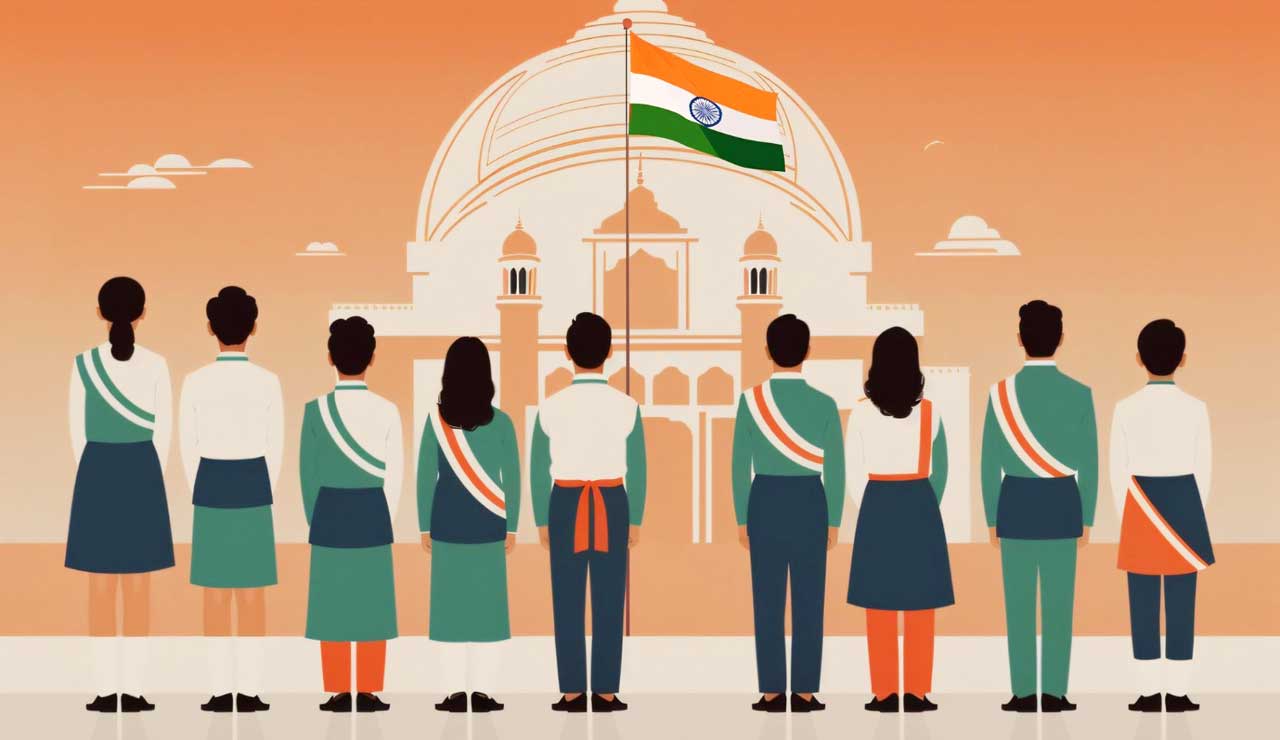Tracing the Nation’s Evolution
As we celebrate the 77th Independence Day, it is essential for us to understand the remarkable journey of our nation and the significant historical events that have shaped the present-day tapestry of India.
From 1857 to 1947
 The Seeds of Resistance: The story begins with the Indian Rebellion of 1857, also known as the Sepoy Mutiny, which laid the foundation structure for future movements against British imperialism. The revolt, though suppressed, ignited a spark of resistance that would eventually lead to the demand for self-rule by the Indians.
The Seeds of Resistance: The story begins with the Indian Rebellion of 1857, also known as the Sepoy Mutiny, which laid the foundation structure for future movements against British imperialism. The revolt, though suppressed, ignited a spark of resistance that would eventually lead to the demand for self-rule by the Indians.
Formation of National Identity: The late 19th and early 20th centuries saw the emergence of prominent leaders like Dadabhai Naoroji, Bal Gangadhar Tilak and Annie Besant, who initiated efforts to unite the diverse Indian populace under the banner of a national identity.
Non-Cooperation and Civil Disobedience: Mahatma Gandhi’s arrival on the Indian political scene in the early 20th century heralded a new era of non-violent resistance. His philosophies of satyagraha and civil disobedience became powerful tools for India’s freedom movement. Movements like the Salt March (1930) and the Quit India Movement (1942) illustrated the growing resolve of Indians to demand autonomy.
 World Wars: The two World Wars had a profound impact on India’s quest for independence. Indians participated in large numbers in the British Army, which exposed them to international ideas of freedom and democracy. Post-World War I, the Montagu-Chelmsford Reforms of 1919 and the Simon Commission of 1927 sparked further demands for self-governance.
World Wars: The two World Wars had a profound impact on India’s quest for independence. Indians participated in large numbers in the British Army, which exposed them to international ideas of freedom and democracy. Post-World War I, the Montagu-Chelmsford Reforms of 1919 and the Simon Commission of 1927 sparked further demands for self-governance.
The period from 1857 to 1947 marks a transformative era in India’s history, characterized by struggle, resilience, and eventual triumph in the form of Indian independence act of 1947.
As citizens of India, our conversations frequently revolve around our rights, however, there are also some duties we have as we enjoy our rights, because rights are paralleled by essential duties always. As esteemed members of this nation, we carry a significant responsibility to fulfill. If you happen to be a parent aspiring to nurture your child into a responsible citizen, consider the “MS Education Academy” as a comprehensive learning haven for your young one.
Did you know that we have fundamental duties outlined in the Indian Constitution under Article 51A?
- To abide by the constitution and respect its ideals
- To cherish and follow the noble ideals that inspired our freedom fighters
- To uphold and protect the sovereignty, unity, and integrity of India
- To defend the country and render national service when called upon
- To promote harmony and the spirit of common brotherhood among all people of India
- To value and preserve the rich heritage of our composite culture
- To protect and improve the natural environment, including Forests, Lakes, Rivers, and Wildlife
- To develop scientific temper, humanism, and the spirit of inquiry and reform
- To safeguard public property and to abjure violence
- To strive towards excellence in all spheres of individual and collective activity
- To provide opportunities for education to one’s child or ward, as the case may be
Theses 11 fundamental duties are like guiding book to us to fulfill our roles as responsible Indian citizens. These duties encompass various aspects of our behavior and actions, reinforcing the idea that our citizenship goes beyond just enjoying rights, it involves actively contributing to the welfare and progress of our beloved nation.
Written by: Mohd. Talib Khan





